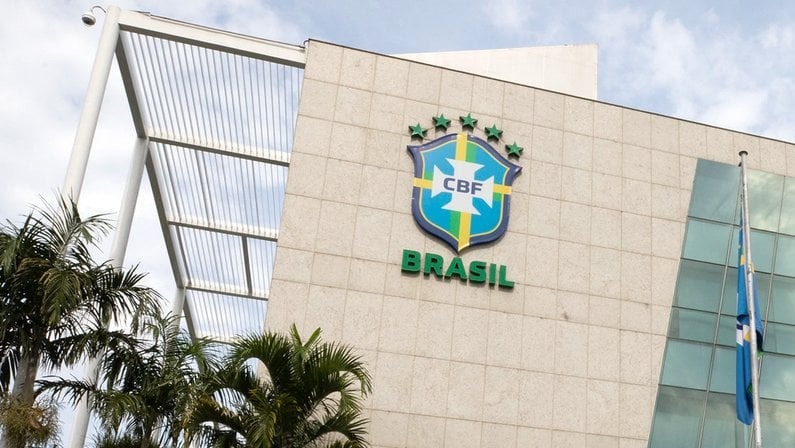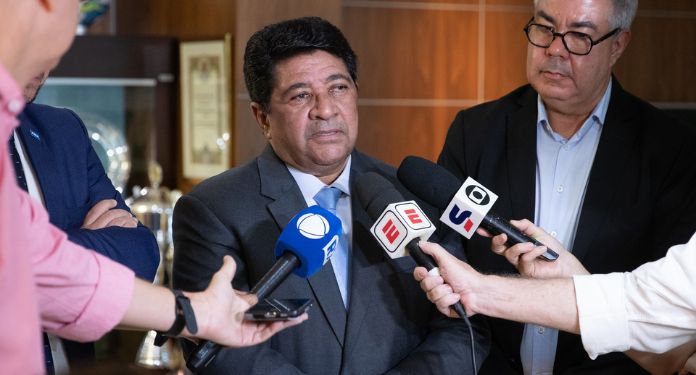The Brazilian Football Confederation (CBF) is considering changing the rules of the championships so that clubs are obliged to contribute part of the revenue from bookmakers.
This measure comes as a reaction to the entity’s frustrated attempt to take a share of the revenue from sports betting, an activity recently regulated in Brazil.
CBF’s failed attempt with the government
Initially, the CBF tried to negotiate with the government to keep 5% of the gross revenue generated by football betting. The proposal provided for the sharing of this revenue with the government, but the veto prevented implementation.
After the denial, the CBF changed its strategy and is now seeking to secure a portion of the resources that clubs receive from bookmakers. These funds would finance programs to combat match-fixing, a crucial issue in maintaining the integrity of competitions.
The entity estimates that the program would cost around US$15 million per year, approximately R$82 million, based on the most recent quote. However, the proposal faces resistance from clubs.

Club resistance
The clubs consulted expressed their opposition to the new proposal. For them, this is an obligation of the CBF, especially considering that the entity already receives a part of the revenue from bets placed on games organized by it.
The teams argue that negotiations with bookmakers are a private matter and that the resources already allocated to the CBF are sufficient to cover its expenses.
Furthermore, the clubs pressured the Ministry of Finance so that the legislation made it clear that resources from sports betting belong to the private sector. This request aimed to avoid inspection by the Federal Audit Court (TCU), but the request was denied.
The CBF tried to increase its revenue through sports betting, but this strategy failed. Even so, the entity continues to look for new ways to finance its operations, especially in the fight against manipulation of results.
With the government’s rejection and the clubs’ opposition, the CBF faces a significant challenge in finding a sustainable financing model without damaging relations with the teams and the government.
Liga Forte União proposes Brasileirão broadcast agreement for bookmakers
Liga Forte União, represented by the company Live Mode, is negotiating new ways of broadcasting Brazilian Championship games. The initiative includes the sale of broadcasting rights to open TV and digital platforms, in addition to bookmakers.
However, these offers face obstacles due to the proposed schedules, which do not align with the standards established by the Brazilian Football Confederation.
Live Mode proposed two sponsorship quotas for broadcasts from 2025 onwards. The first quota involves broadcast packages aimed at open TV channels and digital platforms.
Broadcasts would take place on Saturdays at 4pm and Wednesdays at 7pm. Furthermore, bookmakers, such as Betfair and Sportingbet, are being approached for sponsorship, with expectations of raising up to R$500 million.

CBF opposition
Despite the enthusiasm of the Liga Forte, the CBF, which regulates game times, was not consulted about the new schedules. The sports entity considers it unfeasible to hold matches on Saturdays at 4pm, due to the short interval between games during the week.
However, there is an opening for negotiations regarding games on Wednesdays, at 7pm, which may indicate future flexibility. Liga Forte offered two packages to bookmakers: Golaço and Replay.
The Golaço package includes 2,318 minutes of exposure, surpassing Globo’s current offer, and has a value of R$131 million. The Replay package, in turn, offers 2,516 minutes of media, with exclusive content on betting before and after games. The value of this package is R$132 million.
Negotiations with Record
In addition to the bookmakers, Liga Forte is also in advanced negotiations with Record to broadcast the games on open TV. The initial proposal is R$200 million for the period from 2025 to 2027, with a division of rights with YouTube.
The Liga Forte União is made up of Series A clubs, such as Athletico, Botafogo, Corinthians, Criciúma and Internacional, among others. It also includes teams from Series B, such as América Mineiro, Ceará and Sport, expanding the scope of the proposal.















